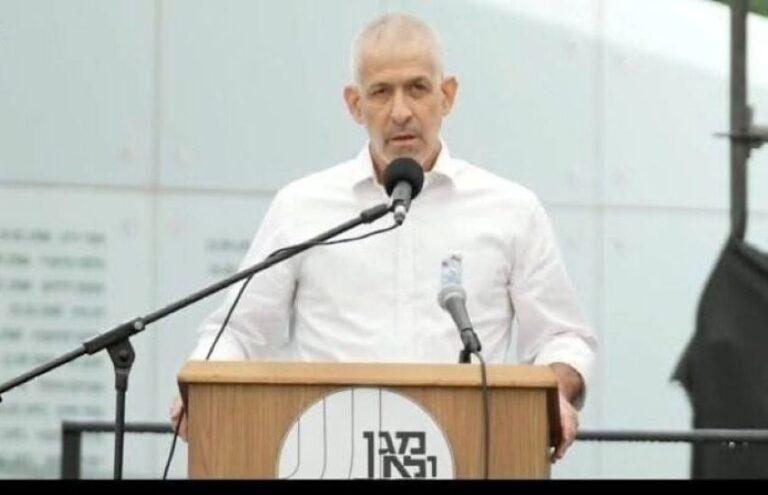 As frustration was setting in, calmer seas returned Wednesday and the search for the remains of Flight 370 began anew in remote waters of the Indian Ocean off western Australia.
As frustration was setting in, calmer seas returned Wednesday and the search for the remains of Flight 370 began anew in remote waters of the Indian Ocean off western Australia.
Gale-force winds that forced an all-day delay Tuesday died down, allowing a total of 12 planes and two ships from the United States, China, Japan, South Korea, Australia and New Zealand to resume the hunt for any pieces of the Malaysia Airlines jet — tangible evidence for the families seeking closure after more than two weeks of anguished uncertainty.
A day earlier, angry relatives shouted “Liars!” in the streets of Beijing about Malaysia’s declaration that the plane went down with all aboard.
Although officials sharply narrowed the search zone based on the last satellite signals received from the Boeing 777, it was still estimated at 1.6 million square kilometers (622,000 square miles), an area bigger than Texas and Oklahoma combined.
“We’re not searching for a needle in a haystack — we’re still trying to define where the haystack is,” Australia’s deputy defense chief, Air Marshal Mark Binskin, told reporters Tuesday at a military base in the Australian west coast city of Perth as idle planes stood behind him.
The Australian Maritime Safety Authority, which coordinates the search on Malaysia’s behalf, said Wednesday’s search will focus on 80,000 square kilometers (30,900 square miles) of ocean. The search area is about 2,500 kilometers (1,550 miles) southwest of Perth.
Australian Prime Minister Tony Abbott told Nine network television on Wednesday: “We’re throwing everything we have at this search.”
“This is about the most inaccessible spot imaginable. It’s thousands of kilometers from anywhere, but nevertheless, we are the closest nation. We are a capable nation. We will do what we can to solve this riddle,” he later told Seven Network television.
Malaysia announced Monday that an analysis of satellite data received after Flight 370 left Kuala Lumpur for Beijing on March 8 indicated the plane had gone down in the Indian Ocean, killing all 239 people aboard.
The finding did not answer troubling questions about why the plane was so far off-course. China, home to 153 of the passengers, demanded that Malaysia turn over the satellite data used to determine the plane’s fate.
The airline’s chairman, Mohammed Nor Mohammed Yusof, said it may take time for further answers to become clear.
“The investigation still underway may yet prove to be even longer and more complex than it has been since March 8th,” he said.
The search for the wreckage and the plane’s flight data and cockpit voice recorders could take years because the ocean can extend to up to 7,000 meters (23,000 feet) deep in some parts. It took two years to find the black box from an Air France jet that went down in the Atlantic Ocean on a flight from Rio de Janeiro to Paris in 2009, and searchers knew within days where the crash site was.
There is a race against the clock to find Flight 370’s black boxes, whose battery-powered “pinger” could stop sending signals within two weeks. The batteries are designed to last at least a month.
David Ferreira, an oceanographer at the University of Reading in Britain, said little is known about the detailed topography of the seabed where the plane is believed to have crashed.
“We know much more about the surface of the moon than we do about the ocean floor in that part of the Indian Ocean,” Ferreira said.
Searching for a needle in a haystack would be simple by comparison, he said.
“This haystack is in the dark, two or three miles underwater, hundreds of miles from land, and in a field no one has even seen before, let alone mapped,” Ferreira added.
The satellite information does not provide an exact location — only a rough estimate of where the jet went down.
Defense Minister Hishammuddin Hussein said the data is still being analyzed “to attempt to determine the final position of the aircraft” and that an international working group of satellite and aircraft performance experts had been set up.
Monday’s announcement that there were no survivors unleashed sorrow and anger among the victims’ families, who have complained bitterly about a lack of reliable information from Malaysian officials.
Nearly 100 relatives and their supporters marched Tuesday to the Malaysian Embassy in Beijing, where they threw plastic water bottles, tried to rush the gate and chanted, “Liars!”
Many wore white T-shirts that read “Let’s pray for MH370.” They held banners and shouted, “Tell the truth! Return our relatives!”
Police briefly scuffled with a group of relatives who tried to approach journalists. The relatives demanded to see the Malaysian ambassador, and they later met with him.
In a clear statement of support for the families, Chinese President Xi Jinping ordered a special envoy, Vice Foreign Minister Zhang Yesui, to Kuala Lumpur to deal with the case. Deputy Foreign Minister Xie Hangsheng told Malaysia’s ambassador that China wanted to know exactly what led Malaysian Prime Minister Najib Razak to announce that the plane had been lost, a statement on the ministry’s website said.
The conclusions were based on an analysis of the brief signals the plane sent every hour to a satellite belonging to Inmarsat, a British company, even after other communication systems on the jetliner shut down for unknown reasons.
Mohammed Nor, the airline’s chairman, said the conclusion was based on “the evidence given to us, and by rational deduction.”
Investigators will be looking at various possibilities, including mechanical or electrical failure, hijacking, sabotage, terrorism or issues related to the mental health of the pilots or someone else on board.
“We do not know why. We do not know how. We do not know how the terrible tragedy happened,” Malaysia Airlines’ chief executive, Ahmad Jauhari Yahya, told reporters.
Australian and Chinese search planes spotted floating objects southwest of Perth on Monday, but none was retrieved. With the 24-hour delay in the search, those objects and other possible debris from the plane could drift to an even wider area.
There are 26 countries involved in the search, and Hishammudin said the problems are not diplomatic “but technical and logistical.”
“We’ve got to get lucky,” said John Goglia, a former member of the U.S. National Transportation Safety Board. “It’s a race to get to the area in time to catch the black box pinger while it’s still working.”
(AP)










